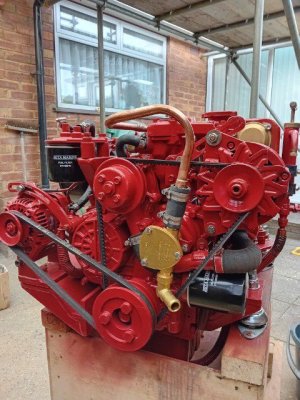Tinto
Active member
I have a Mermaid engine which is based on the Ford XLD418 used in the Fiesta and Escort etc back in the day. Its been very reliable and parts are cheap as chips. Swapping engine to another brand makes the whole project more complicated and expensive and I cant see the benefit of it.
So with that in mind, I am looking for recommendations for companies to recondition the engine.
Thank you for your recommendations on who to use. I am based in Largs some somewhere around here would be good, but I don't mind shipping it on a pallet.
So with that in mind, I am looking for recommendations for companies to recondition the engine.
Thank you for your recommendations on who to use. I am based in Largs some somewhere around here would be good, but I don't mind shipping it on a pallet.

